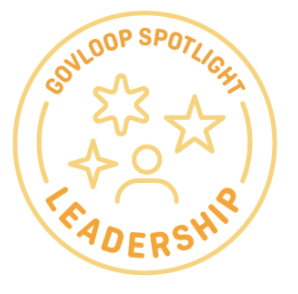 Achieving accountability in the workplace is still a common challenge among organizations today. A Harvard Business Review study conducted in 2020 shows that 82% of managers acknowledge they have “limited to no ability” to successfully hold others accountable. And 91% of employees say that “effectively holding others accountable“ is a top leadership-development need.
Achieving accountability in the workplace is still a common challenge among organizations today. A Harvard Business Review study conducted in 2020 shows that 82% of managers acknowledge they have “limited to no ability” to successfully hold others accountable. And 91% of employees say that “effectively holding others accountable“ is a top leadership-development need.
Attaining a culture of accountability in an office environment already had its challenges. Organizations are now having to add the pandemic and remote work to the equation.
By implementing a few meaningful efforts, agencies can create a culture of accountability in their workforces.
- Holding leaders accountable sets the tone for the rest of the organization. Leaders must be willing to walk the talk and hold each other responsible as well. Employees may not express their displeasure when they see a leader “getting away” with their behavior, but they are watching. And observed behavior can lead to imitation. When everyone is treated the same – regardless of their position and title – it sets the precedent that all employees are equal, and no one is above breaking the rules.
- Set clear expectations. This step is important because it outlines expectations for all parties. The task and details should be well defined, e.g., the expected outcome, important dates and deadlines, how the effort will be measured, who is doing what, etc. The more details, the better.
- Obtain employee buy-in. Employees are more likely to be accountable if they are included in the decision-making process early on. When their input is considered, there is a feeling of ownership that enables them to be more responsible to obtain desired results. They feel responsible for the outcome they collectively contributed to identify, making them more likely to finish the task.
- Communicate frequently. I personally find miscommunication to be the leader of confusion – especially given the pandemic where face-to-face interactions are limited and we’re unable to read our colleagues’ body language and facial expressions. I’m a big fan of 15-minute huddle sessions, a practice that I learned when conducting Scrum Methodologies. It provides a small but valuable window to touch base, mitigate any pressure points that hinder the progress of a task and level-set expectations throughout each stage. Frequent communication also helps establish a bond and positive rapport among team members that naturally leads to helping and covering for each other because of an established sense of community.
Accountability is achievable if we’re willing to do the work to get there. Practicing people skills – the skills that provide the ability to work with or talk to other people in an effective and respectful manner – goes a long way. We hold ourselves more accountable for our actions when we feel a connection to the task and our team. The more we’re able to connect through shared humility and fairness, the better we can build trust and create a safe space to show up for each other. That is when accountability naturally becomes a part of our culture.
Ozlem is a senior management official currently working for the Director of the Office of Communications at the Internal Revenue Service (IRS). She’s been employed at the IRS for 16 years, possessing a wide range of experience from the Collections, Engagement & Retention Office and the Strategy and Organizational Improvement Office to name a few.
Interested in becoming a Featured Contributor? Email topics you’re interested in covering for GovLoop to [email protected]. And to read more from our summer/fall 2021 Cohort, here is a full list of every Featured Contributor during this cohort and a link to their stories.






Leave a Reply
You must be logged in to post a comment.